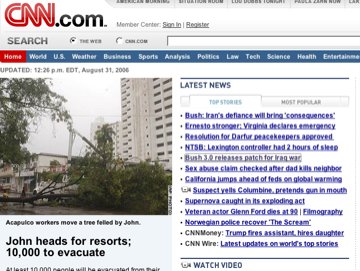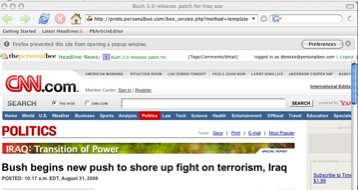A gem in the Montreal Mirror, an alternative weekly in the Great White North. Hersh was making an appearance at McGill University, and the Mirror did a set-up piece. The main subject, unsurprisingly, was Iraq. Hersh sounds taken aback by the interviewer, calling him opinionated, obsessional, and tendentious, and remarking, “This is the strangest interview I’ve ever had.” When the interviewer asks a question about Americans’ “willful ignorance” of the world, Hersh protests that he can’t conclude the lack of knowledge is willful, then adds:
“…Americans are pretty fucking ignorant. What we don’t know is pretty huge. You could never accuse Americans of learning from history or learning from past mistakes. You’re talking about a country that went to war in Vietnam with the theory that we had to bomb North Vietnam in order to keep the hordes of Red China from coming, right? Not knowing that Vietnam and China had fought wars for 2,000 years and would fight one four years after the war was over, in ’79. What we don’t know is just breathtaking in my country. To call this ignorance wilful as opposed to general ignorance, I don’t know. On any issue, Americans can display an incredible lack of information. I doubt if there’s a society which has paid less attention to the facts than any else.”
Technorati Tags: gwot, iraq, media, war on terror




